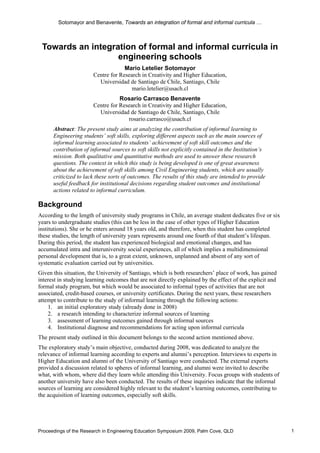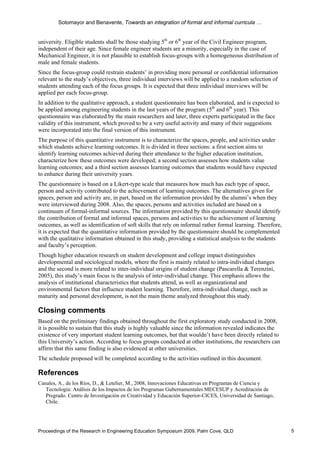This document discusses a study that aims to analyze how informal learning contributes to engineering students' development of soft skills. The researchers are conducting the study in multiple stages: 1) An initial exploratory study to analyze the relevance of informal learning according to experts and alumni, 2) Characterizing the informal sources of learning for engineering students, 3) Assessing the learning outcomes gained through informal sources, and 4) Providing recommendations to institutions on how to integrate informal learning into their curricula. The context is the need to improve engineering students' soft skills like communication, ethics and leadership, as innovations in formal curricula do not necessarily translate to educational improvements.





